MercoPress. South Atlantic News Agency
Tag: Argentina
-
Wednesday, April 1st 2020 - 18:23 UTC
Guatemala/Belize dispute, a potential second front during the Falklands conflict?

The Falklands War, a 10-week undeclared conflict between Argentina and the United Kingdom, broke out in April 1982 over two British dependent territories in the South Atlantic. However, it appears, the Argentine threat was not the only one that Downing Street had to counter at the time.
-
Wednesday, April 1st 2020 - 10:31 UTC
Argentines requesting food assistance jump to 11 million; government had estimated four million
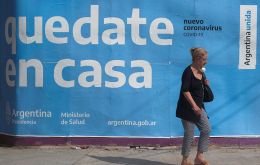
The Argentine government said on Tuesday that the number of people requesting food assistance has increased following the government lockdown to help prevent the spread of COVID-19, leaving some unable to work.
-
Tuesday, March 31st 2020 - 12:58 UTC
Foreign debt must wait: “the pandemic and Argentines' health are priorities”

Honoring foreign debt will have to wait because given the coronavirus pandemic priority is now the health of the Argentines, said president Alberto Fernandez on Monday, adding he would not let local companies fire o declare workers redundant.
-
Tuesday, March 31st 2020 - 12:45 UTC
Argentina expected to make a symbolic US$ 225 million interest payment
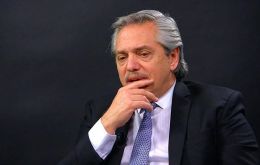
Argentina will layout “guideposts” this week for a restructuring of its nearly US$70 billion in foreign debt, but the country is not yet ready to make a formal proposal to creditors, according to political sources in Buenos Aires.
-
Tuesday, March 31st 2020 - 12:24 UTC
Argentine jigger fleet begins operating north of parallel 44o. as of April first

Argentine jiggers will begin operating north of parallel 44o on April first, following on a decision from the Fisheries Under Secretariat chief, Carlos Liberman. The Fisheries Federal Council is impeded of meeting because of the coronavirus pandemic rules imposed in Argentina. Anyhow the decision was taken based on a report from the Inidep research institute.
-
Monday, March 30th 2020 - 08:56 UTC
Argentina satisfied with pandemic quarantine results, extends the circulation ban until 12 April
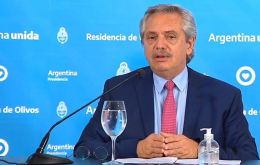
Mandatory quarantine measures that permit citizens to leave their homes only for essential reasons will remain in place in Argentina until April 12, President Alberto Fernandez announced on Sunday.
-
Saturday, March 28th 2020 - 08:50 UTC
ITUC praises Argentina for putting people first in fighting Covid 19
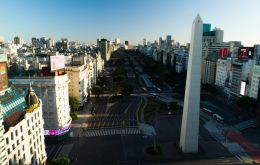
A new analysis from the International Trade Union Confederation, ITUC, of government responses from 69 countries to the COVID-19 pandemic has identified 12 governments that are putting people first as they tackle the economic fallout from lockdown measures to stem the spread of the virus.
-
Thursday, March 26th 2020 - 08:45 UTC
Argentine economy contracted 2,2% last year and could drop another 2% in 2020
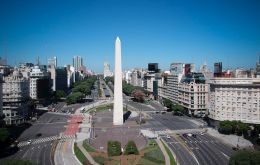
Argentina's GDP contracted 2.2% last year, hit by the downfall of manufacturing, retail and financial activities, according to the official stats office, Indec. In the last quarter of 2019 the economy dropped 1% over the previous quarter and 1.1% compared to the fourth quarter of 2018.
-
Thursday, March 26th 2020 - 08:27 UTC
Argentina's “Children and youth protection project” receives US$ 300 million from World Bank

The World Bank Board of Directors approved a new US$ 300 million operation to support Argentina’s efforts to strengthen its social protection system and minimize the impact of the crisis on the most vulnerable families.
-
Tuesday, March 24th 2020 - 10:03 UTC
With the pandemic, Argentina has “a thousand more reasons” to delay debt payments
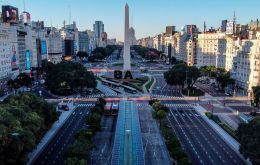
Argentina does not plan to resume debt payments to the International Monetary Fund (IMF) for five years, buying time to pull the economy out of a worsening recession after the coronavirus outbreak led the government to impose a stay-at-home order until the end of March which also put the brakes- on activity
